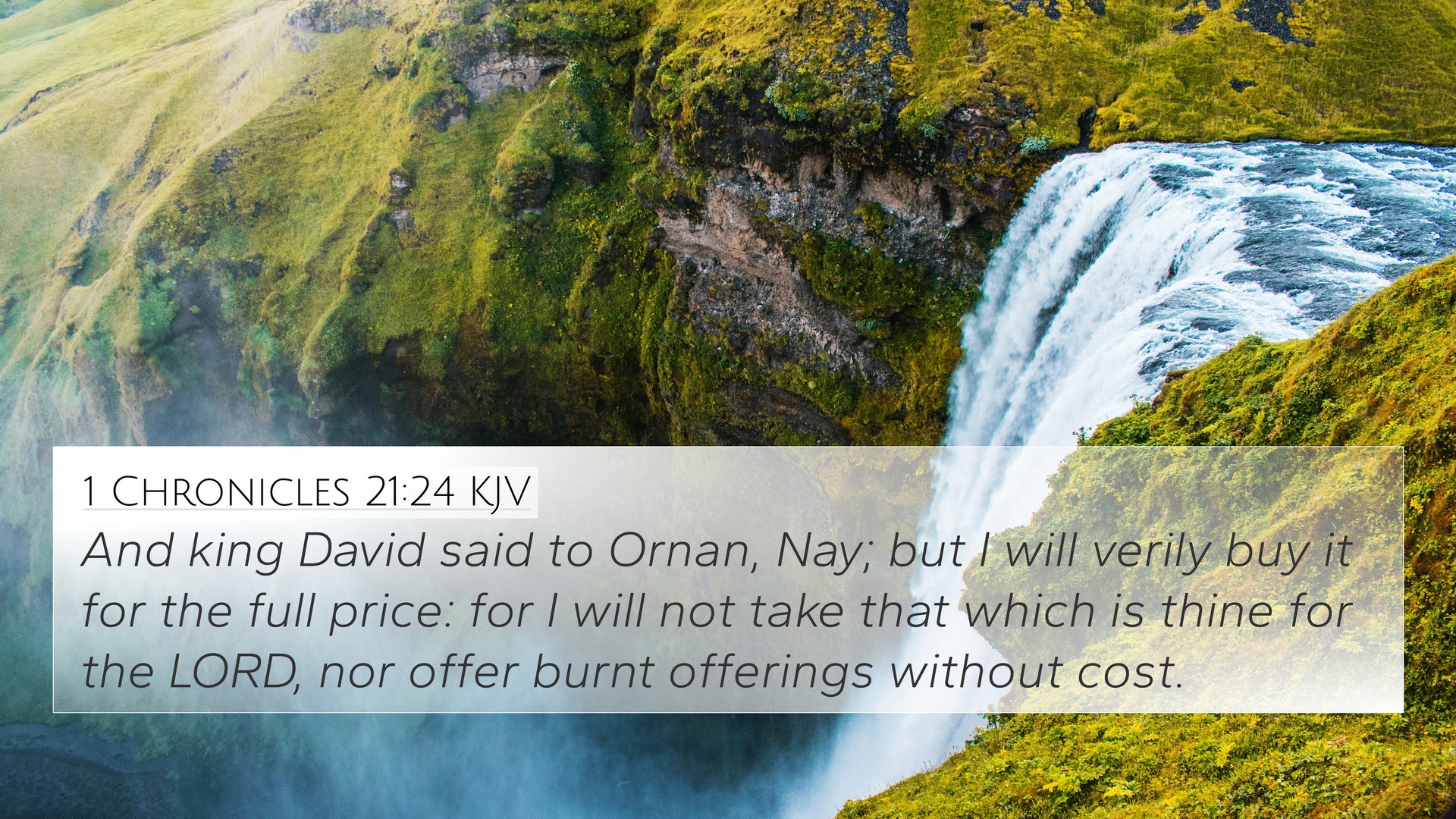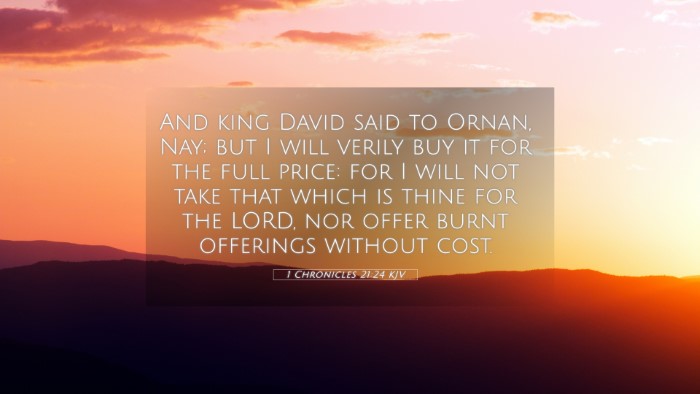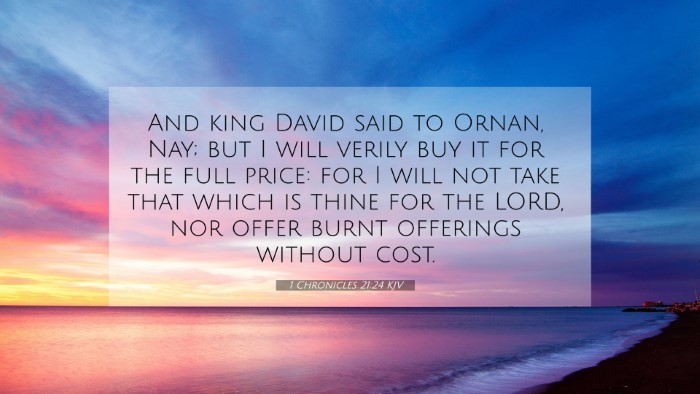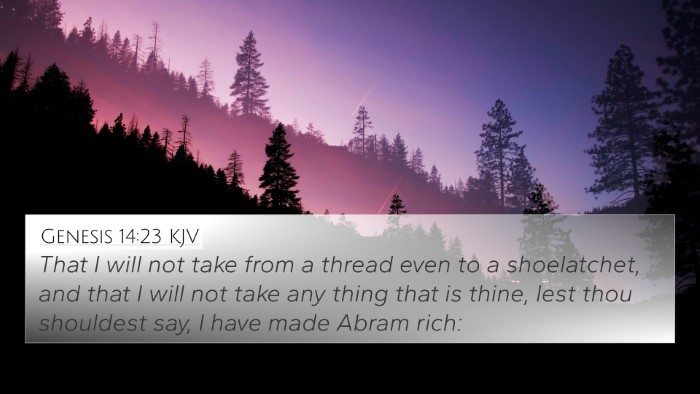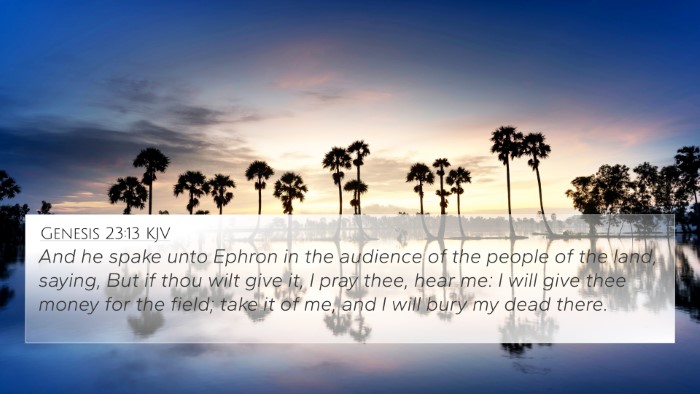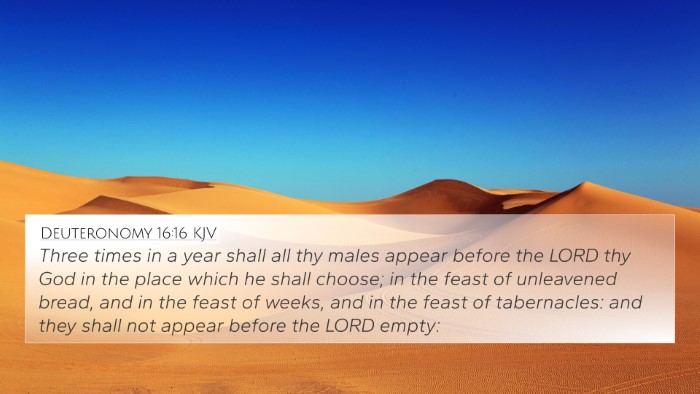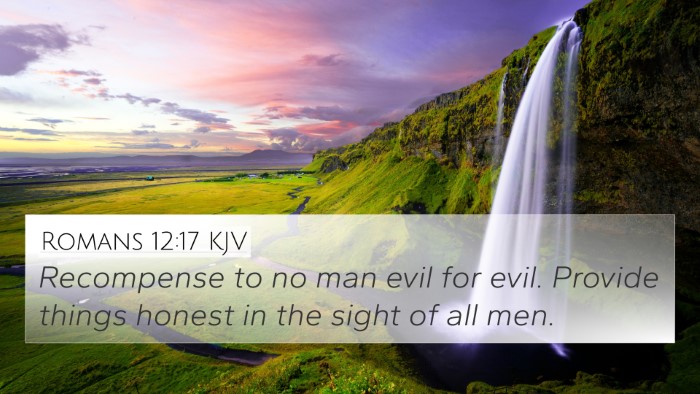Understanding 1 Chronicles 21:24
Verse: "And king David said to Ornan, Nay; but I will verily buy it for the full price: for I will not take that which is thine for the LORD, nor offer burnt offerings without cost." - 1 Chronicles 21:24
Summary of Meaning
This verse captures a pivotal moment in King David's life when he chooses to purchase a site for the altar of the Lord, emphasizing the importance of giving to God without seeking to take what belongs to others. David's decision to buy the land rather than accept it for free, even from Ornan (also known as Araunah), reflects his understanding of the value of sacrificial giving. In worship, offerings should come at a personal cost to be deemed sincere and honorable.
Insights from Public Domain Commentaries
Matthew Henry's Commentary
Matthew Henry highlights that David's refusal to take the land for free demonstrates a profound respect for God and the seriousness of worship. He argues that genuine offerings are not mere transactions but should originate from our own possessions. David understood that to honor God appropriately, he needed to bear the financial burden himself, reinforcing the principle of sacrificial living in faith.
Albert Barnes' Commentary
Albert Barnes emphasizes the significance of David's declaration that he would not offer burnt offerings that cost him nothing. He reflects on the biblical principle that true worship involves sacrifice, suggesting that this moment set a precedent for the later worship practices in Israel. Barnes notes that the act of purchasing the land also affirms David's leadership and responsibility as king to provide for the worship of the Lord properly.
Adam Clarke's Commentary
Adam Clarke discusses the character of Ornan and the implications of David's response. He indicates that accepting the land for free could diminish the reverence owed to God in worship. Clarke elucidates how offerings should be a testament to one's devotion and faithfulness, which cannot be fulfilled by regrettable shortcuts. David's purchase serves as a model for subsequently establishing the temple and leading the nation in righteous worship.
Bible Verse Cross-References
- Genesis 22:2 - Abraham's offering of Isaac underscores the test of faith and the principle of sacrifice.
- 2 Samuel 24:24 - This verse parallels the account of David refusing to offer to God that which costs him nothing.
- Exodus 20:24 - Instructions for offering sacrifices denote the necessity of choosing one's own property for offerings to the Lord.
- 1 Samuel 15:22 - Obedience is valued more than sacrifice, illustrating that the heart of worship matters.
- Malachi 1:14 - God denounces superficial offerings that do not come from a place of honor and reverence.
- Luke 21:1-4 - The widow's mite highlights that the value of a gift is not in its monetary amount but in its heartfelt sacrifice.
- Romans 12:1 - We are called to present our lives as living sacrifices, emphasizing the personal cost of devotion.
Thematic Connections
In 1 Chronicles 21:24, the theme of sacrificial giving resonates throughout the Scriptures, showing how worship rooted in costliness reflects a true relationship with God. The connections between Bible verses surrounding this theme invite an exploration of how God desires our hearts rather than mere offerings.
Inter-Biblical Dialogue
The interactions between these verses reveal a consistent biblical narrative where God values sacrifices that require personal investment. By examining the connections between Old and New Testament offerings, one can witness the progression of faith from physical offerings to spiritual worship.
Tools for Bible Cross-Referencing
- Bible concordance for finding related verses on sacrifice.
- Bible cross-reference guide to explore connections between different books of the Bible.
- Cross-reference Bible study methods for deeper insights into thematic correlations.
- Bible reference resources can aid in sermon preparation and personal study.
Conclusion
1 Chronicles 21:24 encapsulates a crucial principle in worship through King David’s commitment to sacrificial giving. By studying this verse alongside its cross-references, believers can gain a deeper understanding of the nature of true worship and the significance of giving to God sincerely. Whether engaging in comparative Bible verse analysis or seeking out thematic Bible verse connections, this verse serves as a foundational teaching on offering and worship within the biblical context.
